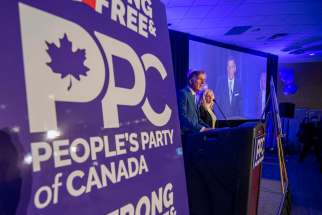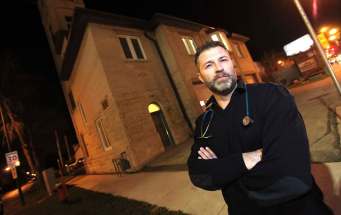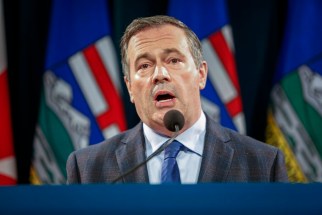Western alienation stays on federal radar
Read this article for free:
or
Already have an account? Log in here »
To continue reading, please subscribe:
Monthly Digital Subscription
$0 for the first 4 weeks*
- Enjoy unlimited reading on winnipegfreepress.com
- Read the E-Edition, our digital replica newspaper
- Access News Break, our award-winning app
- Play interactive puzzles
*No charge for 4 weeks then price increases to the regular rate of $19.00 plus GST every four weeks. Offer available to new and qualified returning subscribers only. Cancel any time.
Monthly Digital Subscription
$4.75/week*
- Enjoy unlimited reading on winnipegfreepress.com
- Read the E-Edition, our digital replica newspaper
- Access News Break, our award-winning app
- Play interactive puzzles
*Billed as $19 plus GST every four weeks. Cancel any time.
To continue reading, please subscribe:
Add Free Press access to your Brandon Sun subscription for only an additional
$1 for the first 4 weeks*
*Your next subscription payment will increase by $1.00 and you will be charged $16.99 plus GST for four weeks. After four weeks, your payment will increase to $23.99 plus GST every four weeks.
Read unlimited articles for free today:
or
Already have an account? Log in here »
Hey there, time traveller!
This article was published 21/09/2021 (1539 days ago), so information in it may no longer be current.
LANGLEY, B.C. — In the lead-up to Monday’s election, Kevin Potschka was concerned the People’s Party would limit Western Canada’s voice on the federal stage.
“The PPC seems like it was made by Trudeau, to take away votes from the Conservatives,” said Potschka, who was concerned about COVID-19 vaccination mandates but even more worried about the Liberals getting re-elected.
“If the Conservatives had those votes, they’d totally win.”
Potschka’s worst fears were realized Monday, when the Liberals picked up his Cloverdale—Langley City riding with a 2.3 percentage point win over the Conservative incumbent.
The People’s Party of Canada candidate drew roughly five per cent of the votes cast in the riding, placing it among a dozen that might have otherwise elected Tories.
Votes were still being counted Tuesday, and it’s not clear how many PPC voters would have actually cast a ballot for the Conservatives.
Yet the Liberals are returning to power with a minority government and a limited number of western seats, just as the PPC made gains in the region, which is coping with a historic drought, dire COVID-19 numbers and an uncertain future for the oil and gas sectors.
“There are some regional issues that are percolating that Trudeau’s got to address,” said University of Manitoba political scientist Christopher Adams.
“There are some regional issues that are percolating that Trudeau’s got to address.” – University of Manitoba political scientist Christopher Adams
The 2019 election followed so-called “yellow vest” protests over regulations that thwarted oil-sector expansion.
The Liberals ended up with no available MPs representing Alberta and Saskatchewan to appoint as a cabinet minister, just as a separatist Wexit movement took hold.
Prime Minister Justin Trudeau tasked Manitoba cabinet minister Jim Carr (Winnipeg South Centre) with taking the pulse of the West for the past two years.
Carr said Tuesday the Liberals are making progress on healing the divide but have more work to do too.
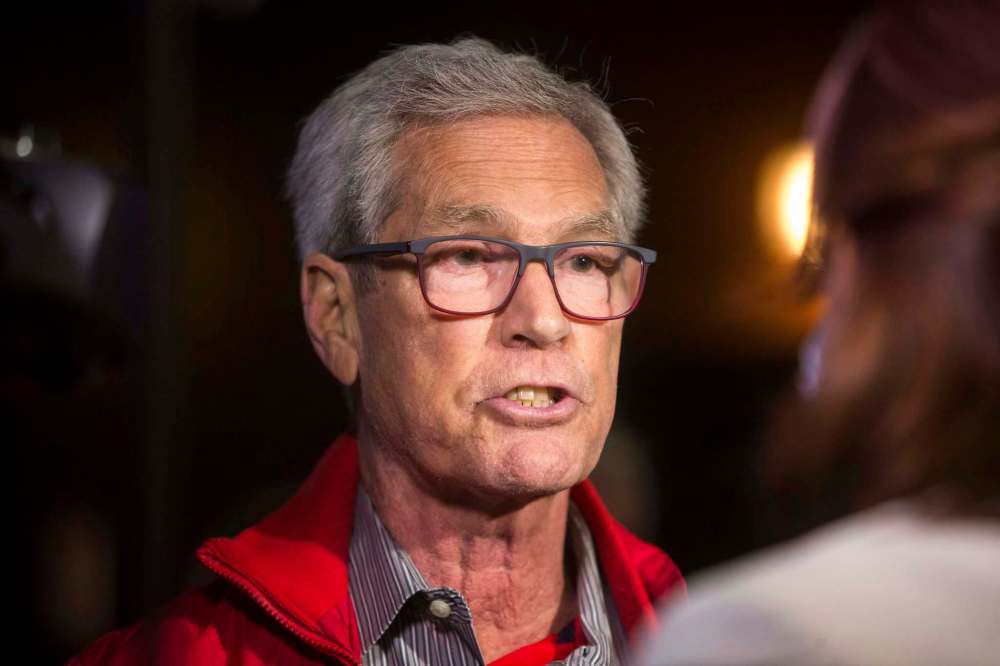
“I believe that a lot of the anger, that was so real in 2019, had dissipated… because of our handling of the pandemic,” Carr told the Free Press.
“We would all be happier with more seats, but this is a start. It’s a base upon which we can build,” he said, declining to speculate on how that will be reflected in cabinet.
“It’s a much better place than the one we were at, and we’ll just continue to be more and more attentive to the special economic realities of Prairie Canada.”
The Liberals gained at least one seat in Alberta and others in rural areas near Vancouver. As of Tuesday afternoon, Liberals were leading in Edmonton Centre and neck-and-neck with the Tories in the Manitoba riding of Charleswood—St. James—Assiniboia—Headingley.
“We would all be happier with more seats, but this is a start. It’s a base upon which we can build.” – Liberal Jim Carr (Winnipeg South Centre)
Carr chalked those gains up to good candidates and hard work, but also the disastrous management of COVID-19 in the Prairies.
“The comparison in how the government of Canada dealt with the health crisis, and how Conservative premiers did — I think that contrast probably influenced some,” Carr said.
Similarly, he felt those who object to the public health orders endorsed by the mainstream likely drove up PPC support.
The People’s Party gained support across the West, particularly in parts of southeast Manitoba that have been the sites of anti-vaccine rallies.
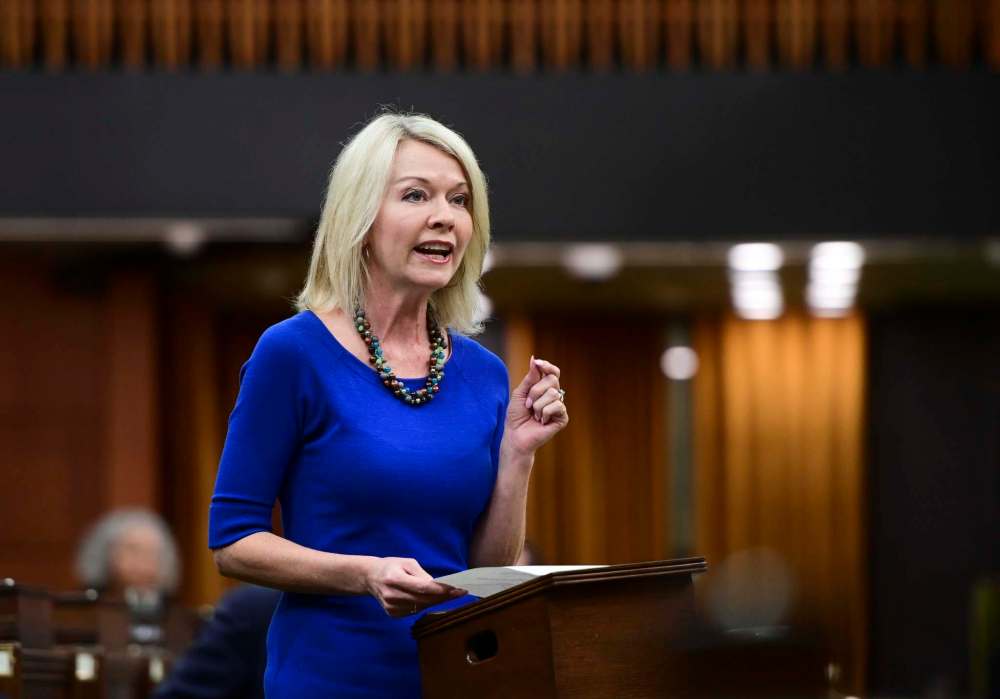
In Portage—Lisgar, which includes the city of Winkler, the PPC placed second with about 21 per cent of votes, which aligns with the drop in support for Tory incumbent Candice Bergen, who had 53 per cent of votes Monday.
Next door in Provencher, which includes the city of Steinbach, the PPC earned roughly 17 per cent support, compared with Tory incumbent Ted Falk winning with 49 per cent support.
Adams says it’s the latest iteration of western resentment toward the powerful centre of the country, which has spurred everything from the Confederation of Regions Party to the United Farmers movement of the 1920s and, most visibly, the Reform Party.
“The PPC taps into a lot of populist, political emotions that we’ve seen in Western Canada over many years,” Adams said.
“It’s this thing that percolates every now and then on the Prairies, but this time what assisted it is the pandemic, with people who don’t want to wear masks and don’t want vaccinations and passports.”
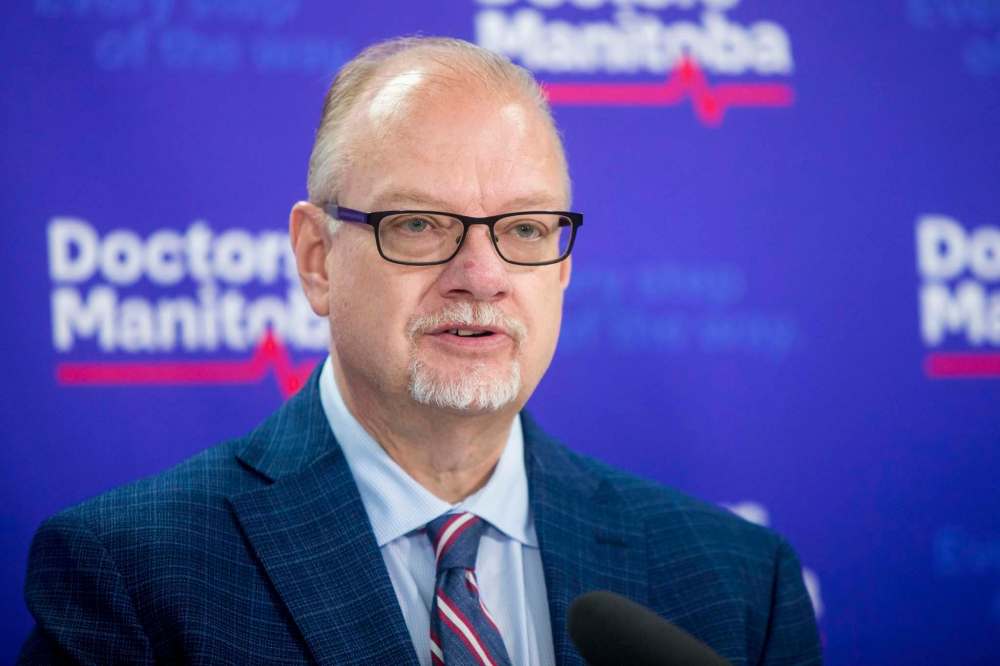
Similarly, Manitoba Premier Kelvin Goertzen suggested the PPC might be a passing fad, and hoped there’d be entirely different issues in the next federal campaign.
“I do believe that that division will dissipate as we move through the pandemic,” the premier said, noting most votes were for mainstream parties.
“Canadians overall took a look at how the different parties represented themselves and overwhelmingly said that we need to continue to work together to get through this pandemic.”
In Langley, Potschka also feels the PPC split would be temporary in B.C. tight races, as his province had just started having restaurants and gyms enforce immunization cards days before the vote.
“As soon as you start separating society, it gets really negchative,” said Potschka, whose riding was until recently a Conservative stronghold.
Carr said people who voted for the People’s Party aren’t all angry mobs out to break the law or incite people.
“We have to understand that people are alienated and are marginalized, and we have to examine carefully why that is,” he said. “This is an issue that is something we all have to look at really seriously, and we will.”
— with files from Daniella Da Silva
dylan.robertson@freepress.mb.ca

